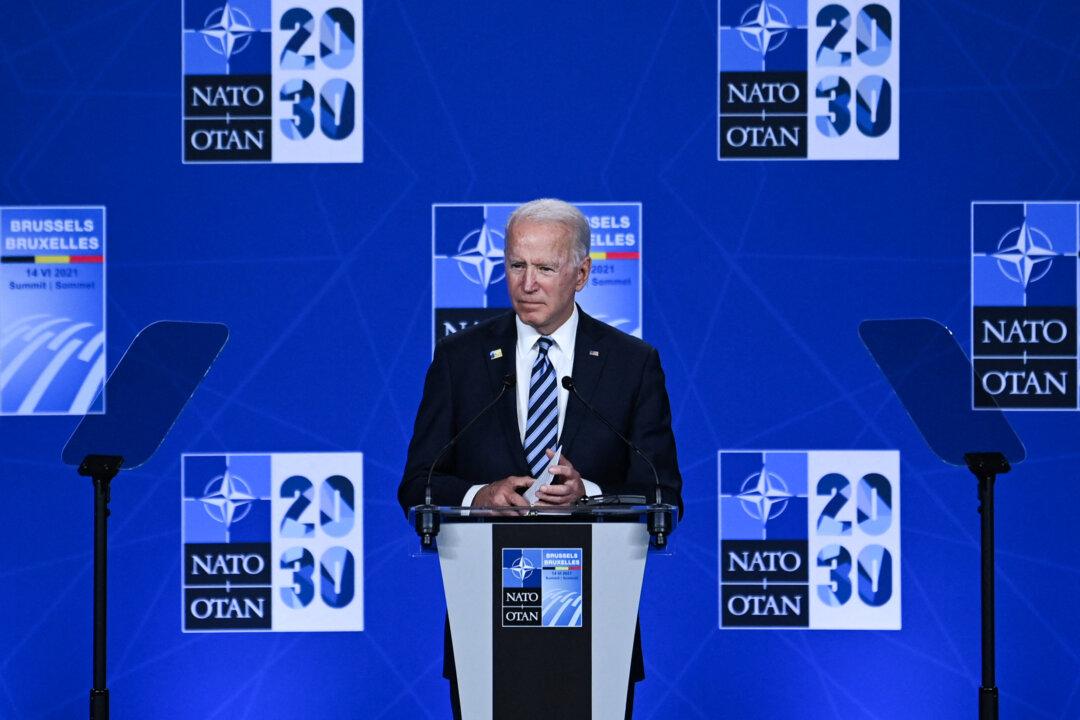Beijing lashed out at the North Atlantic Treaty Organization (NATO) after 30 world leaders of the alliance issued a communiqué critical of the communist regime.
“China’s stated ambitions and assertive behavior present systemic challenges to the rules-based international order and to areas relevant to alliance security,” the communiqué stated after leaders met for a one-day summit in Brussels on June 14.





